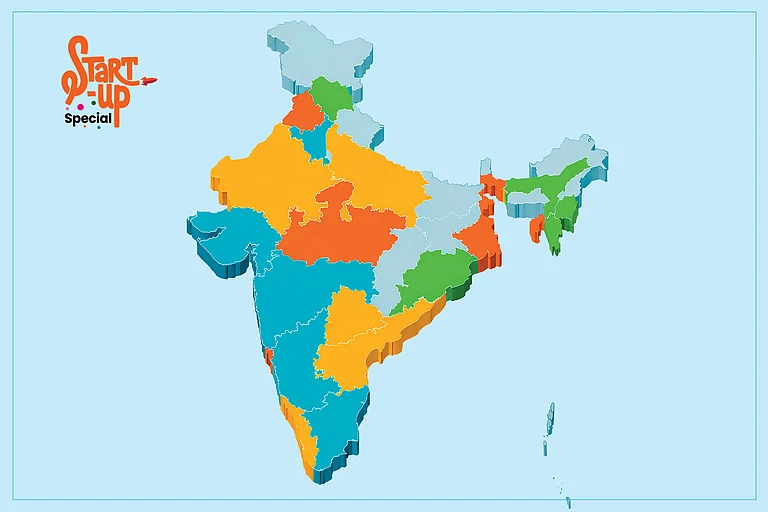Nine Years of Nurturing the Entrepreneurial Ecosystem
Start-up India has been instrumental in nurturing a robust entrepreneurial ecosystem by addressing the key challenges that new businesses typically face. The programme has made it significantly easier to launch and scale start-ups through regulatory reforms, tax benefits and access to funding. Over the past nine years, the initiative has simplified compliance processes, reduced bureaucratic hurdles and empowered entrepreneurs to focus on their innovations rather than paperwork.
The establishment of over 500 incubation centres and innovation labs has been one of the cornerstones of Start-up India’s success. These hubs have offered vital mentorship, access to technical resources and market exposure, allowing entrepreneurs to test ideas, adapt and scale their businesses sustainably. The result is a diverse ecosystem that encourages creativity and rewards risk-taking, with entrepreneurs finding opportunities in sectors that were previously considered traditional or underserved.
One of the most notable impacts of Start-up India over the last nine years is the way it has sparked innovation across various industries. The initiative has empowered start-ups to use cutting-edge technology to transform traditional sectors such as agriculture, healthcare and education. The rise of e-commerce and digital services, in particular, has had a profound effect on consumer behaviour, offering unprecedented convenience and accessibility.
In sectors like fintech, healthtech and edtech, Indian start-ups have emerged as global leaders. These new-age companies are not only driving domestic growth but are also exporting their solutions to the world. India’s unicorns, born out of the Start-up India framework, have significantly altered the global perception of India as a hub for tech innovation.
Empowering First-Generation Entrepreneurs
A defining feature of Start-up India is its success in empowering first-generation entrepreneurs. By providing access to financial and technical resources, the initiative has levelled the playing field, enabling entrepreneurs from Tier-II and Tier-III cities to participate in the start-up ecosystem. Over the past nine years, this inclusive approach has given rise to a wave of innovation from smaller towns and cities, ensuring that India’s start-up success is not limited to metropolitan hubs.
Women entrepreneurs have also seen substantial benefits from the Start-up India initiative. The programme has opened doors for women to launch and lead businesses across sectors, from tech-driven solutions to social impact ventures. This has not only expanded the entrepreneurial base but has also contributed to gender diversity in the country’s start-up ecosystem.India has long been known for its dynamic economy and vast human potential, but in recent years, the country has emerged as a global hub for innovation and entrepreneurship, thanks largely to the Government of India’s Start-up India initiative. Launched in 2016, Start-up India has been a cornerstone in reshaping India's entrepreneurial landscape, fostering a culture of innovation and positioning the country as a prominent player on the world stage. Today, India is home to thousands of start-ups, many of which are making significant strides not only within the country but also globally.
India’s Start-ups on the Global Stage
As Indian start-ups have grown, so has their global influence. Over the past nine years, Indian start-ups have attracted international investors and expanded their footprint in global markets. These businesses are competing with established global players, offering innovative solutions and tapping into new opportunities in emerging technologies.
India’s technological prowess, especially in areas like artificial intelligence, blockchain and data analytics, has positioned the country’s start-ups as leaders in the global digital revolution. As the world becomes increasingly digitised, Indian entrepreneurs are leveraging this advantage to capture market share and shape the future of global innovation.
As India celebrates nine years of Start-up India, the road ahead is filled with both challenges and opportunities. While the country’s start-up ecosystem is on a strong growth trajectory, there are areas that require continued focus, particularly in funding, regulatory frameworks and global competition.
The regulatory environment must evolve to keep pace with the rapid growth of sectors like fintech and healthcare. An updated and adaptive regulatory framework will be essential for these industries to thrive while ensuring that innovation is balanced with safety and compliance. Also, collaboration between the government, industry, and academia will be critical in fostering the next wave of innovation. As India’s young, dynamic entrepreneurs continue to innovate and disrupt traditional industries, the country’s potential to lead in global markets is immense. The combination of a growing domestic market, a favourable investment climate, and a thriving innovation ecosystem positions India to remain a key player in the world economy.
The writer is co-chairperson, Assocham National Council on Business Facilitation and Global Competitiveness, and Group CEO, Aeries Technologies. Views are personal.


























